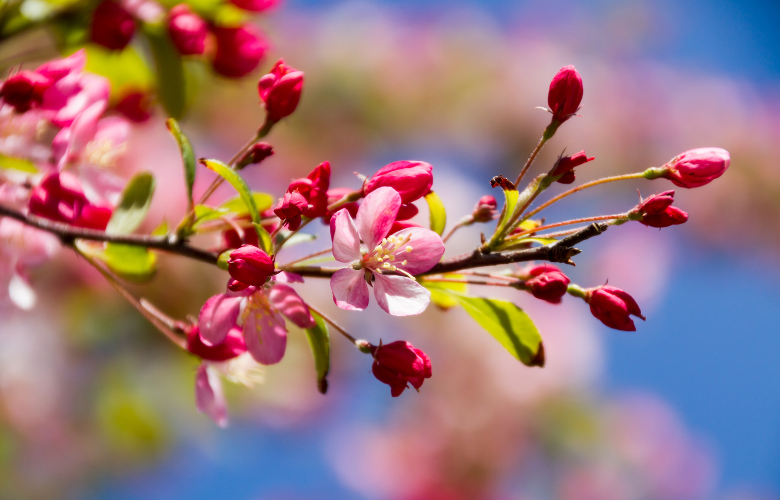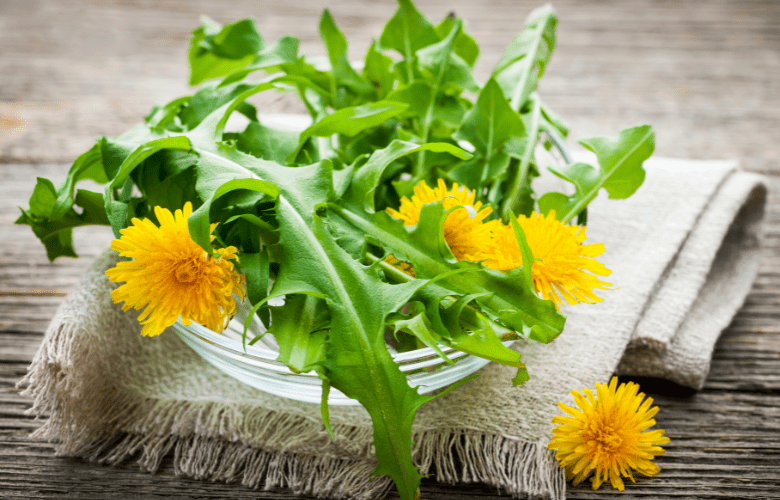Top 7 TCM Spring Health Tips To Boost Your Well-Being
As the seasons shift, it’s time to tune into our health in a whole new way. In Chinese Medicine, spring isn’t just a change in weather – it’s a chance for renewal and growth. Just like nature, our bodies and minds wake up from the winter hibernation. Instead of fighting against it, we’re encouraged to roll with the changes and adjust our routines. By syncing up with the springtime vibe, we set ourselves up for a healthier, more balanced life. So, let’s dive into 7 simple spring health tips to get you feeling your best for the season ahead.
THE SPRING SEASON IN TCM
In Traditional Chinese Medicine, each season aligns with specific elements, organs, and emotions. Spring, ruled by the Wood element, signifies growth and upward energy. This mirrors the vibrancy and transformation we witness in nature during this time of year.
The liver is the organ associated with spring. It’s often called the “general” of the body. It’s responsible for managing smooth Qi (energy) and blood flow throughout the body, regulating menstruation, and maintaining tendon and nail health.
When the liver is balanced, you experience a sense of ease, flexibility, and creativity. However, if liver energy stagnates, it can lead to various physical and emotional symptoms, including:
- Frequent irritability, mood swings, feelings of frustration and even anger
- Digestive issues such as bloating, belching, gas, or discomfort in the abdomen
- Tension headaches or migraines
- Muscle tension and pain, particularly in the neck, shoulders, and upper back.
- Irregular periods, PMS, or painful menstruation
- Difficulty falling asleep or staying asleep
- Fatigue
- Chest tightness or discomfort
- Blurry vision
- Yellowing of the eyes
The gallbladder also plays a vital role in spring. It’s closely linked to the liver, storing and releasing bile for fat digestion. Additionally, it embodies qualities of decisiveness and courage, essential during this season.
Spring prompts us to embrace Wood element traits like flexibility, resilience, and assertiveness. Emotionally, it invites us to release pent-up emotions and embrace new beginnings. It’s a time to set intentions, make decisions, and take action toward our goals.
So, make sure to show some love to your liver and gallbladder—they’re real MVPs! Giving them a little TLC through cleansing and rejuvenation sets the stage for feeling tip-top physically and emotionally all season long and beyond!
7 PROVEN TCM TIPS TO THRIVE IN SPRING
Spring is in the air, and it’s time to thrive! Here are seven TCM tips to help you align your health practices with the rhythm of the season:
Tip #1: Try Acupuncture.
Acupuncture works wonders by stimulating your liver and gallbladder meridians, especially as your body adjusts to the new season. And if those seasonal allergies are getting you down, acupuncture’s got your back, easing those sinus woes and headaches so you can breathe easy again.
Feeling achy, irritable, or tense? Acupuncture can address these symptoms by releasing tension in your muscles and promoting relaxation. It’s a great way to tackle the stress and strain that can build up during seasonal changes.
Your liver might also need extra support, making acupuncture a smart choice to restore balance and vitality. And if you’re dealing with tummy troubles or eye strain, acupuncture can step in to regulate your liver flow, improving digestion and easing those tired eyes.
Tip #2: Explore Chinese Herbs.
Several Chinese herbs are renowned for their ability to support liver and gallbladder health and function. Here are some commonly used ones:
- Dandelion Root (Pu Gong Ying): Dandelion root is known for its detoxifying properties and its ability to promote bile production, aiding in digestion and liver function.
- Milk Thistle (Shui Fei Ji): Milk thistle contains a compound called silymarin, which has antioxidant and anti-inflammatory properties. It is often used to protect the liver from toxins and promote liver regeneration.
- Bupleurum (Chai Hu): Bupleurum is a key herb in many liver-supporting formulas in TCM. It helps to soothe liver Qi stagnation, reduce inflammation, and promote the smooth flow of Qi throughout the body.
- Schisandra (Wu Wei Zi): Schisandra is known as an adaptogenic herb that helps the body adapt to stress. It also supports liver function by promoting detoxification and protecting liver cells from damage.
- Gentian (Long Dan Cao): Gentian root is bitter in taste and helps to clear heat from the liver and gallbladder. It is useful for treating conditions like jaundice and hepatitis.
You’ll often find these herbs used individually or in combination with other herbs in TCM formulas. With the guidance of a TCM pro, you can tap into their full potential and feel the rejuvenating effects they bring.
Tip #3: Add greens to your diet.
When it comes to supporting your liver health, think green! In TCM, the liver is linked with the color green, so it’s all about loading up on those vibrant veggies like broccoli, kale, and peas. They act like fuel for your liver, helping it keep the Qi flowing smoothly and maintaining balance.
Spring is an ideal time to go on a detox, so it’s crucial to give your liver a hand with cleansing foods. Load up on greens—they’re packed with all the good stuff like chlorophyll and antioxidants to keep your liver happy and flush out those toxins.
Additionally, green foods have a cooling and cleansing effect on the body, which can help balance out the springtime warmth. With their high water content, they keep you hydrated and ensure everything’s flowing smoothly in your body, from Qi to blood.
Tip # 4. Enjoy sour foods mindfully.
Sour flavors are associated with the Wood element in Chinese Medicine. They give your liver a little nudge to get things moving smoothly with Qi. But, going overboard with sour foods in spring might not be everyone’s cup of tea.
During spring, the liver is already in a state of transition, adjusting to the energy of the season. Adding too many sour foods, which are energetically contracting, may exacerbate liver Qi stagnation or lead to imbalances in the body.
However, don’t go sour-free just yet. It’s all about balance. Including some sour foods in your diet can be beneficial for supporting liver health and digestion. Examples of mild sour foods include:
- Citrus fruits
- Fermented foods like sauerkraut or kimchi
- Sourdough bread
Tip #5: Balance your diet flavors.
For a balanced diet, think about the flavors of what you’re eating. Pungent foods like ginger, garlic, and onions can give your Qi and blood a nice boost when you have them in moderation. But, too much can leave you feeling dry or irritated, especially if you’re lacking in Yin.
On the other hand, sweet foods support digestion when you keep them in check. Opt for naturally sweet options like fruits, root vegetables, and whole grains to steer clear of any dampness or stagnation in your body.
As always, listen to your body’s signals and maintain moderation. For personalized guidance on achieving dietary balance, it’s best to consult with a qualified TCM practitioner.
Tip # 6: Ease into foods cold in nature.
In TCM, the concept of foods being “cold in nature” refers to their energetic properties rather than their temperature. These foods have a cooling effect on the body and are typically recommended during warmer seasons. They keep you feeling cool, hydrated, and balanced, especially during spring and summer.
But don’t jump straight into the cold-food pool, especially if you’re body tends toward cold and dampness. If you’re the type to produce a lot of mucus or deal with loose stools, take it slow with the cold stuff. Ease into it gradually to keep things in balance.
For those with robust digestion, diving into more salads and fresh, seasonal fruits and veggies can be a real treat in spring. These foods are hydrating and rich in vitamins, minerals, and antioxidants, supporting overall health.
Tip #7: Get moving!
The spring season is characterized by the presence of wind in TCM. This signals a time for movement and change. With the sun shining and nature in full bloom, it’s the perfect moment to ditch the winter slump and get active outdoors.
Here are some reasons why regular movement during springtime is beneficial:
- Improved mood: Exercise releases endorphins, neurotransmitters that promote feelings of happiness and well-being. Spending time outdoors and soaking up the sunshine can also boost mood and reduce feelings of stress and anxiety.
- Enhanced circulation: Movement helps promote blood flow and circulation throughout the body, delivering oxygen and nutrients to cells and tissues while flushing out toxins and waste products.
- Supports detoxification: Sweating during physical activity helps the body eliminate toxins through the skin, supporting the natural detoxification process.
- Strengthens immune system: Regular exercise can boost the immune system, helping to defend against illnesses and infections common during seasonal transitions.
- Connects us with nature: Springtime offers the opportunity to connect with the natural world, whether it’s through hiking, gardening, or simply taking a leisurely walk in the park. Spending time outdoors can foster a sense of peace, mindfulness, and connection to the environment.
THE BOTTOM LINE
As we bid farewell to the winter chill, embracing these spring health tips can really kickstart your renewal journey. Whether it’s loading up on green goodies, getting active outdoors, or giving your liver some extra love, there’s no shortage of ways to embrace the season’s vitality. Remember to listen to your body, honor its needs, and make choices that promote balance and well-being. To eliminate the guesswork and trial-and-error approach, chatting a TCM practitioner can be a game-changer. Start implementing these tips today and experience the difference they can make in your life!












